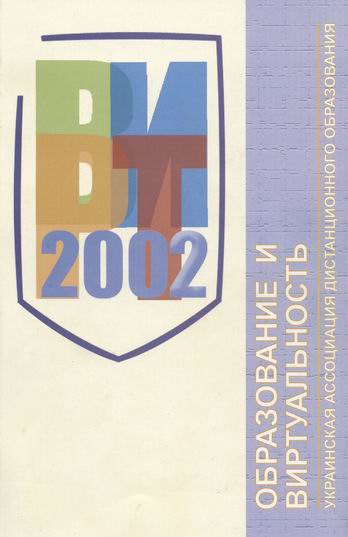
6-th International conference
"Education and virtuality - 2002"
Conference
Materials
Yalta, September, 2002
|
|
6-th International conference Conference
Materials
|
|
|
|
Model of Distance Education System in Technical University (extract) |
|
|
|
Tovazhniansky
L., Kravetz V., Suk O., Kosareva N. |
|
|
|
Abstract It is described the principal tendencies and problems in the process of distance education introduction into technical universities focusing on the Ukrainian experience. Recommendations on the effective management means in launching and developing Center of DE of traditional technical university are listed. . . . . The problem of compensation to faculty of time expenses on development of a distance course and legalization of the academic load arising during its delivery is complex also. Before inclusion DL in normative documents of the Ministry of Science and Education it is possible to offer some working variants of its solution that were approved in national and global practice:
Important aspect of CDE activity is active introduction on the market of continuous education ("lifelong learning"). This direction is connected to educational inquiries of people working in spheres of manufacture, business, bank structures. Here already now there is a plenty of employees which would like to receive education or perfect qualification, but are not able to do it because of impossibility to leave work. DL is a fine exit from such situation, in fact in its frameworks students can choose form, place and time of study. World experience shows, that this direction in the nearest future can become the basic for many Universities . . . .
|